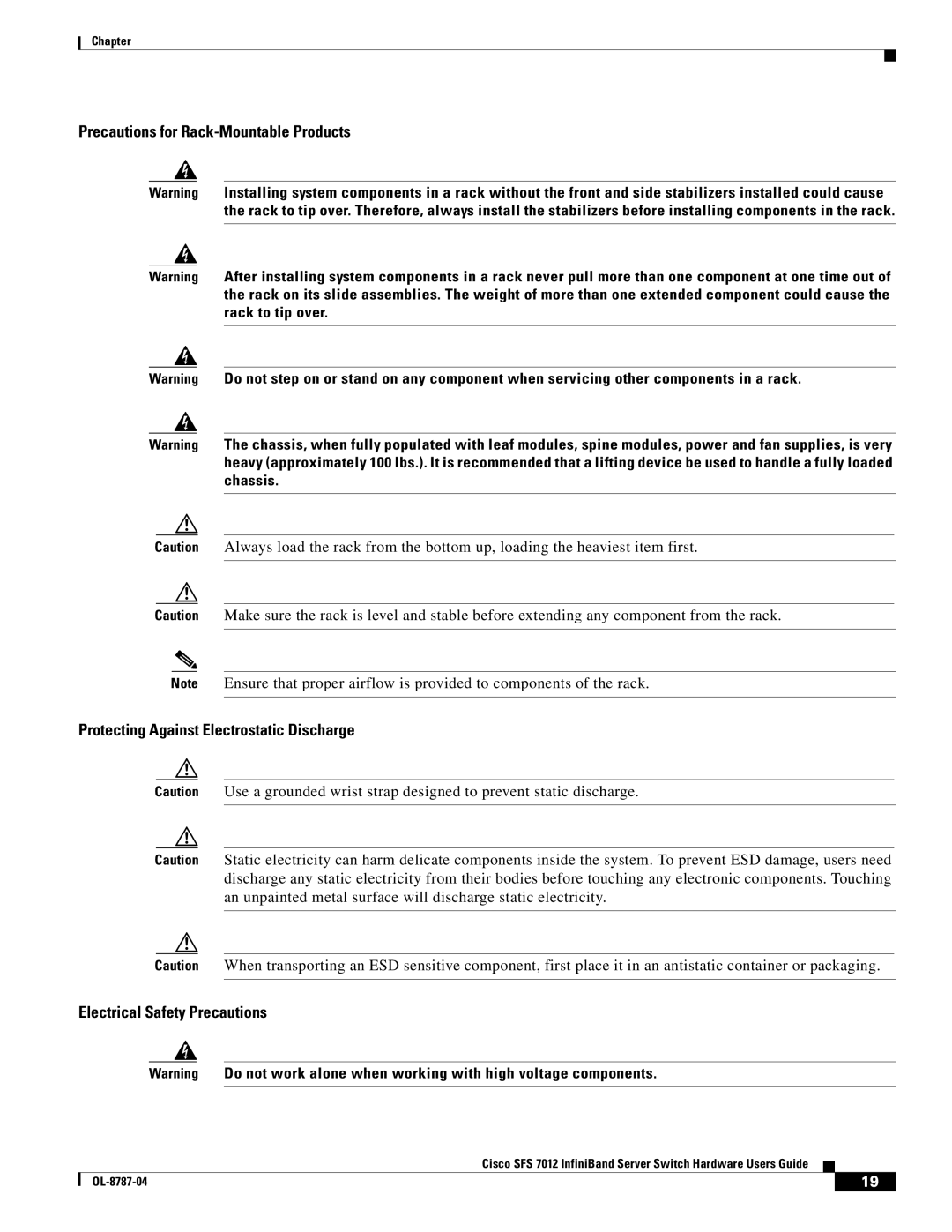
Chapter
Precautions for
Warning Installing system components in a rack without the front and side stabilizers installed could cause the rack to tip over. Therefore, always install the stabilizers before installing components in the rack.
Warning After installing system components in a rack never pull more than one component at one time out of the rack on its slide assemblies. The weight of more than one extended component could cause the rack to tip over.
Warning Do not step on or stand on any component when servicing other components in a rack.
Warning The chassis, when fully populated with leaf modules, spine modules, power and fan supplies, is very heavy (approximately 100 lbs.). It is recommended that a lifting device be used to handle a fully loaded chassis.
Caution Always load the rack from the bottom up, loading the heaviest item first.
Caution Make sure the rack is level and stable before extending any component from the rack.
Note Ensure that proper airflow is provided to components of the rack.
Protecting Against Electrostatic Discharge
Caution
Caution
Use a grounded wrist strap designed to prevent static discharge.
Static electricity can harm delicate components inside the system. To prevent ESD damage, users need discharge any static electricity from their bodies before touching any electronic components. Touching an unpainted metal surface will discharge static electricity.
Caution When transporting an ESD sensitive component, first place it in an antistatic container or packaging.
Electrical Safety Precautions
Warning Do not work alone when working with high voltage components.
Cisco SFS 7012 InfiniBand Server Switch Hardware Users Guide
| 19 |
| |
|
|
